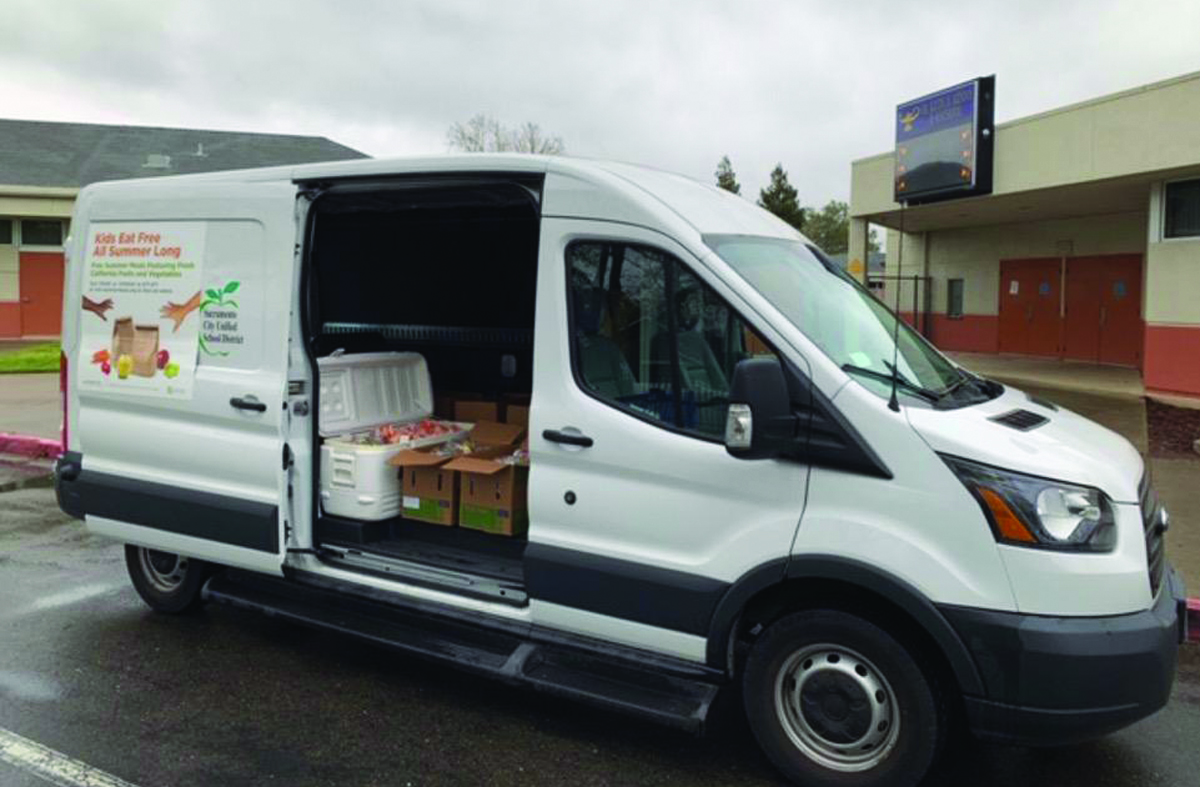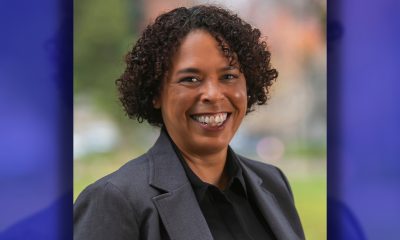Bay Area
Hit By Coronavirus Crisis, School Districts Call Time-out: Still Providing Meals

By Sunday evening, more than 720 of the state’s 1,000 school districts announced they were closing beginning Monday. They made the decision out of an abundance of caution for the health and safety of students, parents and staff and with the intent of sharing responsibility with the broader community in an effort to slow the spread of the coronavirus.
Then, on Monday, county health officials put more than 6.7 million Californians in six Bay Area counties under a “shelter in place” order that instructed residents to stay isolated in their homes and away from public places and human interaction as much as possible.
The directive, which took effect Tuesday at 12:01 am and lasts at least through April 7, affects San Francisco, Santa Clara, San Mateo, Marin, Contra Costa and Alameda counties.
The closures are scheduled to last between two to four weeks.
In all, more than 95 percent of public school students in 41 of 58 counties will be impacted. Many of the school districts that California’s 334,652 African-American students attend have announced they will be closed.
Outside California, more than 33 states, plus the District of Columbia and Puerto Rico, have announced plans to close schools for two or three weeks.
Most of the announcements of school district closings happened on Friday, closely following the closure announcement by the two largest school districts in the state – Los Angeles Unified and San Diego Unified.
Los Angeles superintendent Austin Buetner and Cindy Marten, San Diego superintendent, issued a joint statement that read, “California has now entered a critical new phase in the fight to stop the spread of the COVID-19 pandemic. There is evidence the virus is already present in the communities we serve, and our efforts now must be aimed at preventing its spread. We believe closing the state’s two largest school districts will make an important contribution to this effort.”
Before deciding to close their schools, the districts consulted with their county offices of education and their public health departments. Many school leaders were concerned about interrupting student learning and the negative effect closures would have on the families that depend on schools to provide meals and other essential social services.
Inglewood Unified was one of the school districts making the decision to close on Friday. With a student body that is 40 percent African American, among districts with over 2,000 students, Inglewood has the largest percentage of Black students in the state. Los Angeles Unified with 8.4 percent and Oakland Unified with 24 percent respectively have the largest number of African-American students.
Dr. Erika Torres, Inglewood’s County Administrator, said she decided to close the district’s schools because, “We are concerned about the health, safety and well being of our students and families.”
“I wanted to make sure that we were very proactive in this decision,” she said.
Like many of the school districts that are closing, Inglewood has no reported cases of coronavirus among students or staff.
Even as California banned large public gatherings, Governor Newsom resisted taking steps at the state level to close schools. On Sunday, Newsom defended his approach saying, “I know for a fact that not all these districts have planned for the needs of these kids next week, and I’m deeply concerned about their health and I’m deeply concerned about their safety and I’m deeply concerned about their parents’ inability to go to work and many of those parents work in hospitals, work as firefighters, work as paramedics, work as the people that would get in gear to help us advance the mobile testing (for the virus) throughout the state.”
While school leaders were deciding to close schools last Friday, the U.S. Department of Education said it would consider waiving requirements for statewide tests that are mandated for grades 3-8 and high school. With testing set to start during the spring, it may not be feasible for districts to administer the tests if school closures are extended.
On Friday, Newsom signed an executive order announcing that California schools that close due to the coronavirus outbreak will continue to receive funding, on condition that dollars are directed toward remote learning opportunities and childcare options during workday hours. For school districts like Inglewood Unified and Oakland Unified that are paying off state loans and Los Angeles Unified, which is experiencing budget issues, the governor’s action relieves some of the fiscal strain of closing schools.
Given the rapidly changing nature of the coronavirus outbreak and CDC’s guidance, what school districts decide to do after closing for two to four weeks is in flux. It is important for all parents and students to check their District websites for updated information and follow directives from the California Department of Public Health.
Activism
Oakland Post: Week of April 24 – 30, 2024
The printed Weekly Edition of the Oakland Post: Week of April 24 – 30, 2024

To enlarge your view of this issue, use the slider, magnifying glass icon or full page icon in the lower right corner of the browser window. ![]()
Alameda County
DA Pamela Price Stands by Mom Who Lost Son to Gun Violence in Oakland
Last week, The Post published a photo showing Alameda County District Attorney Pamela Price with Carol Jones, whose son, Patrick DeMarco Scott, was gunned down by an unknown assailant in 2018.

Publisher’s note: Last week, The Post published a photo showing Alameda County District Attorney Pamela Price with Carol Jones, whose son, Patrick DeMarco Scott, was gunned down by an unknown assailant in 2018. The photo was too small for readers to see where the women were and what they were doing. Here we show Price and Jones as they complete a walk in memory of Scott. For more information and to contribute, please contact Carol Jones at 510-978-5517 at morefoundation.help@gmail.com. Courtesy photo.
Bay Area
State Controller Malia Cohen Keynote Speaker at S.F. Wealth Conference
California State Controller Malia Cohen delivered the keynote speech to over 50 business women at the Black Wealth Brunch held on March 28 at the War Memorial and Performing Arts Center at 301 Van Ness Ave. in San Francisco. The Enterprising Women Networking SF Chapter of the American Business Women’s Association (ABWA) hosted the Green Room event to launch its platform designed to close the racial wealth gap in Black and Brown communities.

By Carla Thomas
California State Controller Malia Cohen delivered the keynote speech to over 50 business women at the Black Wealth Brunch held on March 28 at the War Memorial and Performing Arts Center at 301 Van Ness Ave. in San Francisco.
The Enterprising Women Networking SF Chapter of the American Business Women’s Association (ABWA) hosted the Green Room event to launch its platform designed to close the racial wealth gap in Black and Brown communities.
“Our goal is to educate Black and Brown families in the masses about financial wellness, wealth building, and how to protect and preserve wealth,” said ABWA San Francisco Chapter President LaRonda Smith.
ABWA’s mission is to bring together businesswomen of diverse occupations and provide opportunities for them to help themselves and others grow personally and professionally through leadership, education, networking support, and national recognition.
“This day is about recognizing influential women, hearing from an accomplished woman as our keynote speaker and allowing women to come together as powerful people,” said ABWA SF Chapter Vice President Velma Landers.
More than 60 attendees dined on the culinary delights of Chef Sharon Lee of The Spot catering, which included a full soul food brunch of skewered shrimp, chicken, blackened salmon, and mac and cheese.
Cohen discussed the many economic disparities women and people of color face. From pay equity to financial literacy, Cohen shared not only statistics, but was excited about a new solution in motion which entailed partnering with Californians for Financial Education.
“I want everyone to reach their full potential,” she said. “Just a few weeks ago in Sacramento, I partnered with an organization, Californians for Financial Education.
“We gathered 990 signatures and submitted it to the [California] Secretary of State to get an initiative on the ballot that guarantees personal finance courses for every public school kid in the state of California.
“Every California student deserves an equal opportunity to learn about filing taxes, interest rates, budgets, and understanding the impact of credit scores. The way we begin to do that is to teach it,” Cohen said.
By equipping students with information, Cohen hopes to close the financial wealth gap, and give everyone an opportunity to reach their full financial potential. “They have to first be equipped with the information and education is the key. Then all we need are opportunities to step into spaces and places of power.”
Cohen went on to share that in her own upbringing, she was not guided on financial principles that could jump start her finances. “Communities of color don’t have the same information and I don’t know about you, but I did not grow up listening to my parents discussing their assets, their investments, and diversifying their portfolio. This is the kind of nomenclature and language we are trying to introduce to our future generations so we can pivot from a life of poverty so we can pivot away and never return to poverty.”
Cohen urged audience members to pass the initiative on the November 2024 ballot.
“When we come together as women, uplift women, and support women, we all win. By networking and learning together, we can continue to build generational wealth,” said Landers. “Passing a powerful initiative will ensure the next generation of California students will be empowered to make more informed financial decisions, decisions that will last them a lifetime.”
-

 Activism4 weeks ago
Activism4 weeks agoOakland Post: Week of March 27 – April 2, 2024
-

 #NNPA BlackPress4 weeks ago
#NNPA BlackPress4 weeks agoCOMMENTARY: D.C. Crime Bill Fails to Address Root Causes of Violence and Incarceration
-

 #NNPA BlackPress4 weeks ago
#NNPA BlackPress4 weeks agoMayor, City Council President React to May 31 Closing of Birmingham-Southern College
-

 #NNPA BlackPress4 weeks ago
#NNPA BlackPress4 weeks agoBeloved Actor and Activist Louis Cameron Gossett Jr. Dies at 87
-

 Community1 week ago
Community1 week agoFinancial Assistance Bill for Descendants of Enslaved Persons to Help Them Purchase, Own, or Maintain a Home
-

 Activism3 weeks ago
Activism3 weeks agoOakland Post: Week of April 3 – 6, 2024
-

 Business1 week ago
Business1 week agoV.P. Kamala Harris: Americans With Criminal Records Will Soon Be Eligible for SBA Loans
-

 Activism2 weeks ago
Activism2 weeks agoOakland Post: Week of April 10 – 16, 2024























































